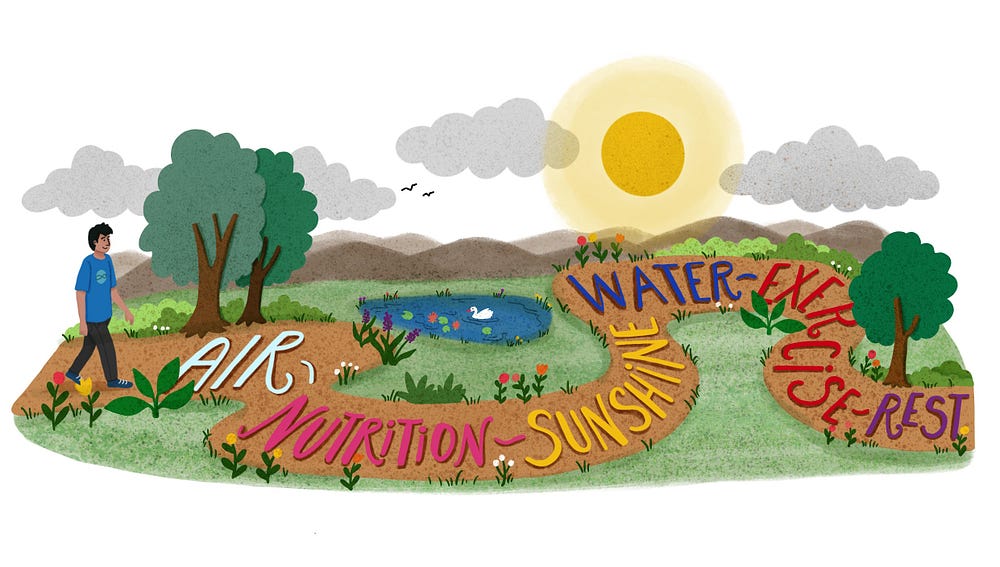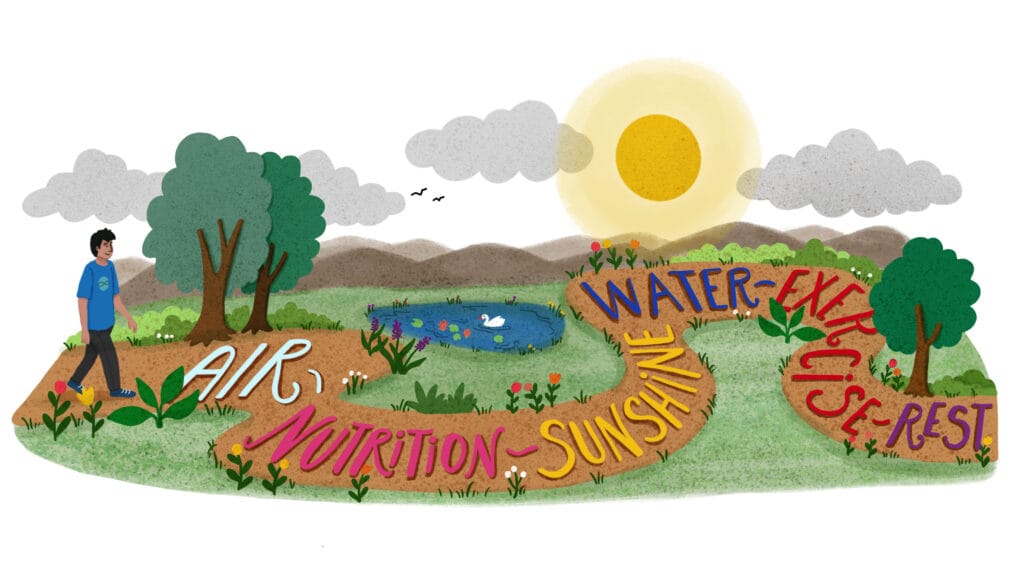Quick Reads From Awakening Wholeness: a book that helps young leaders develop compassion for Myself, Others and The Earth.
Our Mission is supporting Youth Globally in learning Compassion for Oneself, Others & our Environment.

Dr. Pravin Chordia trained as a doctor. He did his MBBS and then his Masters in Surgery. He went on to become a brilliant surgeon, following the conventional trajectory of a good career in medicine. However, he slowly began to understand that there’s a deeper part to health. That it has more to do with the air, the sunlight, nutrition, and other things. And then he formed a movement called Medicine Free Life (MFL). It was a joy to spend time with him and his team at the MFL campus called the “Serene Eco Village”, located close to Velhe, overlooking the backwaters of the Gunjawani Dam.
It’s a beautiful five- and-a-half-hour drive from Pune, India. What you read in this chapter is largely inspired by Dr. Pravin Chordia’s work. He offers some basic tips for good health in the form of an acronym:
ANSWER — Air, Nutrition, Sunlight, Water, Exercise, and Rest. Let’s look at each one of these in more detail.
Sunshine
Get some morning and midday sunshine. As little as 3–15 minutes of sunshine per day has been shown to have benefits for certain populations. Research has shown sunshine has a positive effect on mood and sleep and is critical for producing vitamin D in our bodies. The primary way to get vitamin D is by exposing your bare skin to sunlight; the secondary method is by taking vitamin D supplements.
You can’t get the right amount of vitamin D that your body needs from food alone. Recent studies have found that vitamin D helps you make serotonin, one of our body’s feel-good
hormones.
Healthy serotonin levels result in a more positive mood and a calm yet focused mental outlook. Studies have also found that when people are exposed to sunlight (or very bright artificial light) in the morning, their nocturnal melatonin production occurs sooner, and they enter sleep more easily at night.
Beyond the obvious improvements in well-being with improved mood and sleep, optimal vitamin D levels have been found to be of clinical benefit against cancer, cardiovascular disease, high blood pressure, obesity, type 2 diabetes, cognitive impairment, Parkinson’s disease, fractures, and falls, autoimmune disease, influenza, and more.
The exact amount of sunshine needed per day to maintain optimal vitamin D levels depends on many factors, such as age. It also depends on where you live, the time of day, the colour of your skin, and the amount of skin you expose.








